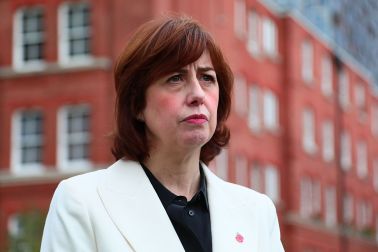Editing a small magazine is like writing a poem. It is half judgment, but also half inspiration. It can never be done by a committee. So I sensed disaster when I read that the Monthly in Melbourne boasted a committee that met regularly to make editorial decisions (even if it did meet, as reported, in Jimmie Watson’s wine bar in Carlton.) The idea of an editorial committee trying to direct, overrule or censor the editor is repugnant, philistine and almost always counterproductive. At best, such a committee is useful as a list of names to indicate support. One or two of them may have an idea worth ringing the editor about. But it cannot edit a magazine. When Paddy McGuinness became editor of Quadrant I agreed to be listed as a member of an editorial committee to show my support for him, but I told him that as soon as anyone called a meeting of the committee, I would immediately resign. Any suggestions I had for him could be given by email. I do not know the details of the Monthly’s internal tensions which led to the sacking of editor Sally Warhaft, but whatever they were, I am on her side.
You will recall that TV advertisement a couple of years ago when Kevin Rudd, then leader of the opposition, surprised us all by declaring: ‘A number of people have described me as an economic conservative. When it comes to public finance it’s a badge I wear with pride.’ The advertisement was a key part of the Labor party’s strategy of marketing Rudd as a low-risk, conservative leader. A number of people, he said. Not many people. Not dozens or hundreds of people. Just ‘a number’ of them. In the light of Prime Minister Rudd’s massive deficits and his more recent attacks on economic conservatism and free markets, we may ask how many is ‘a number’? Peter Hartcher gives an amusing answer in his new book on the decline and fall of the Howard government, To the Bitter End. His answer is: one person.
As Hartcher tells it, just before the advertisement went to air, the Labor party began to panic. National secretary Tim Gartrell asked himself if Rudd were telling the truth. Had ‘a number of people’ really described him as an economic conservative? Was the claim verifiable? It was all very well to follow George ‘ Don’t Think of an Elephant’ Lakoff and try to set the framework before an election campaign begins. But what if the newspapers challenged Rudd’s boast? Gartrell did a Google search. He found that Rudd himself was reported to have said he was an economic conservative. Only one other observer agreed — Paul Kelly of the Australian.
But the advertisement was a great success. Everyone talked about it. It also prepared the ground for Rudd’s comic masterpiece — his denunciation of the Coalition’s election policy: ‘I am saying loud and clear that this sort of reckless spending must stop!’
One of the books I have been reading to my wife these autumnal nights is A Bohemian Affair by Ray Mathew, a collection of his tales of the 1950s. The best of them are moving, Chekhovian pieces. The earliest are a portrait of the artist as a young man in the bush and the later ones explain the title. Reread with Mathew’s poetry and plays of the period, you realise what a promising talent we lost when he left for London in 1960, aged 30, and never came back. But more than that, you also wonder what inspiration he lost. In the 42 years he lived abroad, mainly in New York, where he died in 2002, he continued to pursue the literary life he had almost religiously espoused as a youth and continued writing plays, fiction, and criticism. But he never produced anything that lived up to his promise. Everything he wrote after the flop of the London production of his play The Life of the Party in 1961 was intelligent but ephemeral. He used to say that the excessive acclaim which had greeted his early work had undermined him. This cannot be the full story. It is common enough, almost usual, for young poets to peter out. (Poetry, Ken Slessor used to say, is a young man’s game.) But not novelists and dramatists. The Ray Mathew story cries out for a biography, not so much about the headline material of alcoholism and homosexuality, but one that explores the long years after he left Australia and what happened to his muse. The splendid collection of his papers in the National Library is waiting for the sympathetic biographer.
Andrew Bolt provoked loud guffaws from his fellow panellists in a recent episode of the ABC’s Insiders when he referred to them as ‘the couch collective’. Provoked by their constant interruptions, he had at last protested: ‘You can always pick the conservative on this panel. He’s the one that gets yelled at by the couch collective.’ Yet what he said was a matter of common observation. Barrie Cassidy, the presenter, has been deservedly praised for including one conservative in his panel (usually Bolt or Piers Akerman or Gerard Henderson), in breach of the more familiar ABC practice of having a group of predictable lefties all agreeing with each other and calling it a debate. It makes his show one of the livelier on television. But it is the conservative leaven in the lump that makes it worth watching. For Cassidy to join in the hilarity at Bolt’s expense undermines the basis of his own success.
At the University of New South Wales graduation ceremony last week a doctorate was conferred on the scholar whose thesis was: Neo-normativity, the Sydney gay and lesbian mardi gras and latrinalia: the demonstration of a concept of non-heterosexual performativities.




Comments